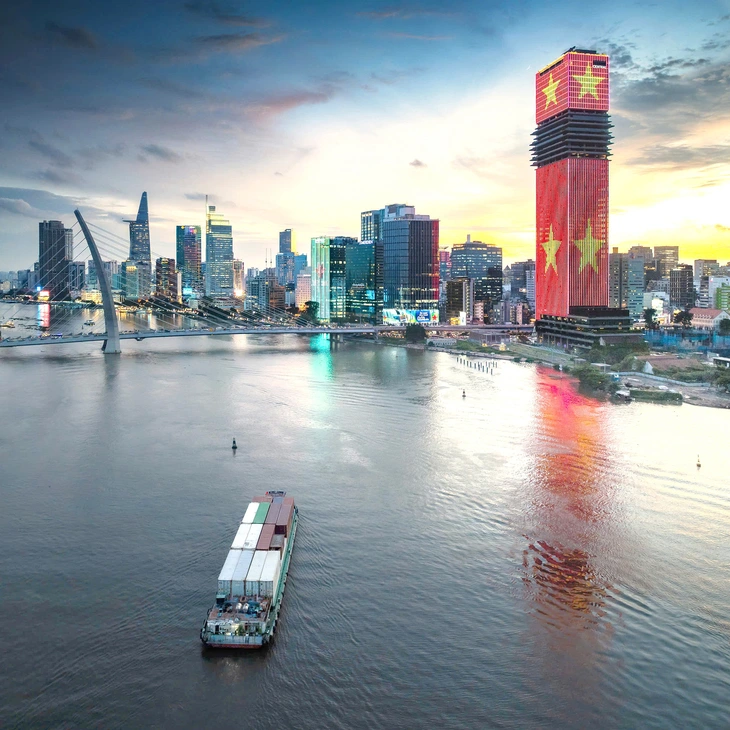
Ho Chi Minh City is building an international financial center, and needs to have mechanisms to adapt to new spaces - Photo: VAN TRUNG
The National Assembly Standing Committee has just commented and agreed to submit to the National Assembly for approval a draft resolution of the National Assembly amending and supplementing a number of articles of Resolution No. 98 on piloting a number of specific mechanisms and policies for the development of Ho Chi Minh City at the 10th session of the 15th National Assembly.
The resolution aims to continue perfecting the legal basis, ensuring special, superior, feasible and more effective mechanisms and policies, meeting urgent requirements in attracting strategic investors, mobilizing domestic and foreign resources for investment and development of Ho Chi Minh City after the merger.
More importantly, it is necessary to overcome difficulties, obstacles and shortcomings arising in the implementation of Resolution 98 to build and develop Ho Chi Minh City into the largest metropolis in Southeast Asia with the position and role of a leading locomotive, nucleus and growth engine of the Southeast and Southwest regions.
Focus on 2 major groups of mechanisms and policies
Chairman of the National Assembly's Economic and Financial Committee Phan Van Mai said that the amendment to Resolution 98 will create a new institutional corridor, strong enough for Ho Chi Minh City to develop as a pioneer in the context of urban space being expanded after the merger. According to him, Ho Chi Minh City will not only increase in area and population but also enhance its role and position, aiming to be in the group of the top 100 cities in the world.
According to Mr. Mai, this revision of the resolution focuses on two major groups of mechanisms and policies, in which the policy to attract strategic investors is significantly expanded.
The draft allows Ho Chi Minh City to flexibly select and give incentives to large-scale projects, with a priority list of up to 11 groups of fields such as: tourism, luxury resorts, specialized healthcare , culture and sports, environment, logistics, urban infrastructure and projects in free trade zones (FTZ). The project capital threshold ranges from 2,000 to 75,000 billion VND.
The criteria for determining strategic investors have also been reformed in a more practical direction, removing the requirements for charter capital and total assets and shifting to assessing the equity ratio and capital mobilization capacity. Strategic investors will enjoy strong incentives on taxes, R&D activities, and flexible disbursement mechanisms, factors that help Ho Chi Minh City increase its competitiveness in attracting large corporations.
The most important breakthrough is the policy on FTZs. Previously, it had to be submitted to the Prime Minister, but now Ho Chi Minh City is given the right to decide on the establishment, expansion, boundary adjustment and regulations on procedures for establishing FTZs. The "one-stop" management model assigns the Export Processing Zone - Industrial Park Management Board to undertake both public administration and business support functions, helping to significantly shorten the investment process.
FTZ also applies a flexible land mechanism, allowing land to be allocated or leased without auction for projects in the zone; at the same time, there are outstanding incentives on corporate income tax and personal income tax for experts, scientists, and high-quality workers.
With these mechanisms, FTZ is expected to become a space for testing new institutions, bringing Ho Chi Minh City closer to its goal of becoming a regional financial, commercial and logistics center.
With the scale of a mega-city, Ho Chi Minh City needs a more flexible and powerful institutional framework to create a breakthrough momentum. The amendment of Resolution 98 therefore becomes urgent, opening up a new legal corridor for dynamic and creative economic models.
Chairman of the National Assembly's Economic and Financial Committee Phan Van Mai
Creating conditions for the development of an international financial center in Ho Chi Minh City
Delegate Hoang Van Cuong, Hanoi, said that Resolution 98 of 2023 issued a special mechanism for Ho Chi Minh City, but so far the city has changed its territorial space organization. Moreover, Ho Chi Minh City is building an international financial center, so there needs to be mechanisms to adapt to new spaces such as Vung Tau or Binh Duong area.
"When expanding space like that, the space for urban development and the space for developing concentrated works will increase. Therefore, the policy of mobilizing resources for investment and development must also change. Especially the policy of exploiting infrastructure and land funds to mobilize resources from land to invest in developing public works," said Mr. Cuong.
According to Mr. Cuong, Ho Chi Minh City is expanding to areas such as Vung Tau, where there are international connectivity facilities, international ports and international financial centers. Thus, Ho Chi Minh City's international exchanges are now very wide.
"With such wide exchange conditions, I think the proposal to form FTZs will mobilize maximum foreign investors and increase the connection between domestic and international investors faster and closer, without having to go through other intermediaries. There needs to be a truly superior and preferential mechanism, but there also needs to be a strict management mechanism to clearly distinguish between FTZs and domestic commercial areas," Mr. Cuong suggested.
Delegate Nguyen Hai Nam, standing member of the National Assembly's Economic and Financial Committee, said that when Ho Chi Minh City needs to mobilize a huge additional resource of VND1.8 million billion, equivalent to USD8-12 billion/year, it requires breakthrough solutions, including the establishment of FTZs to attract investment resources.
According to Mr. Nam, the notable point is the policies proposed such as establishing a complete legal framework for the FTZ model, including location, functional area structure, management mechanism, authority, land policy, investment incentives, simplification of administrative procedures and special customs mechanism.
This addition aims to create a unique and outstanding institutional space for FTZs in Ho Chi Minh City similar to Hai Phong and Da Nang to attract high-quality investment, develop modern services and promote innovation.
Mr. Nam said that to effectively implement this model, it is necessary to promote decentralization, delegation of authority and increase self-responsibility. Many regulations in the draft resolution on this content are very important conditions for effective decentralization, helping the city to proactively decide on contents related to planning, management, land allocation, and attracting investors more conveniently.
Along with that, Mr. Nam said that it is necessary to increase responsibility, associated with Central supervision in implementing the construction of this model.
"When a dynamically developing city is associated with a vibrantly developing FTZ, attracting many investors, the flow of goods is regular and continuous, the operating mechanism is transparent, attractive and ensures investment efficiency, then the optimal resources of the post-merger megacity will be promoted," said Mr. Nam.
Ho Chi Minh City operates as a smart regional city
After the merger, Mr. Phan Van Mai said that Ho Chi Minh City is no longer a normal administrative city but must operate as a smart regional city, where the government is strongly decentralized, organized in a streamlined manner, and operates flexibly on a data and technology platform. Therefore, Ho Chi Minh City needs to establish a governance model of a megacity with its own legal framework, suitable for its population size, economy, and level of regional connectivity.
Back to topic
THANH CHUNG - NGOC AN - TIEN LONG
Source: https://tuoitre.vn/sua-nghi-quyet-98-trao-them-quyen-de-tp-hcm-but-pha-thanh-sieu-do-thi-hang-dau-dong-nam-a-20251126085712791.htm


![[Photo] Prime Minister Pham Minh Chinh chairs the 15th meeting of the Central Emulation and Reward Council](/_next/image?url=https%3A%2F%2Fvphoto.vietnam.vn%2Fthumb%2F1200x675%2Fvietnam%2Fresource%2FIMAGE%2F2025%2F11%2F27%2F1764245150205_dsc-1922-jpg.webp&w=3840&q=75)





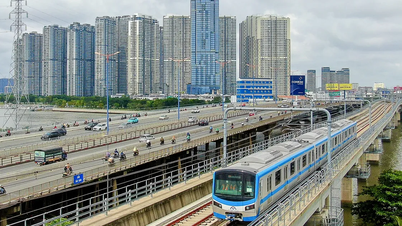

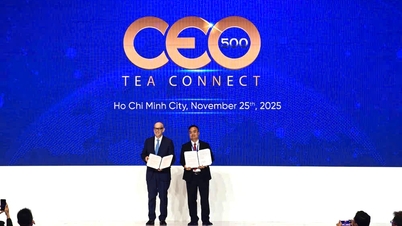

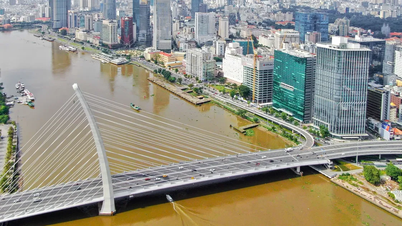
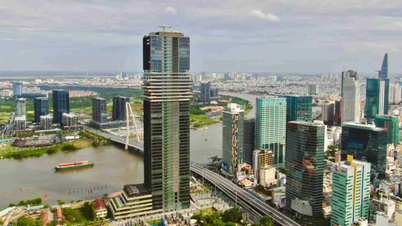
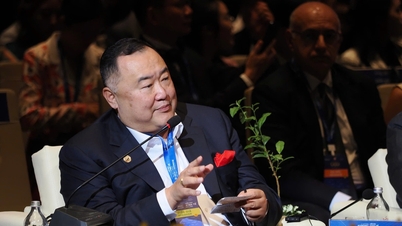
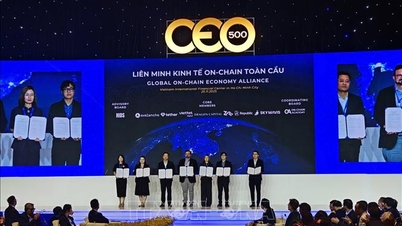



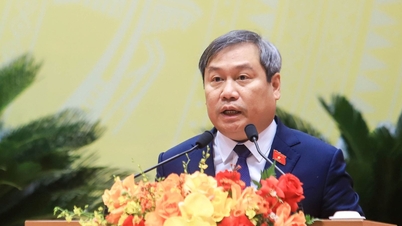
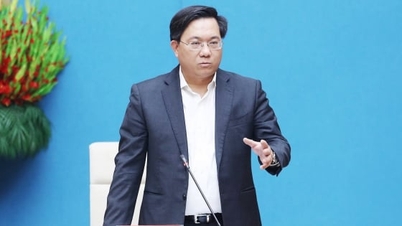

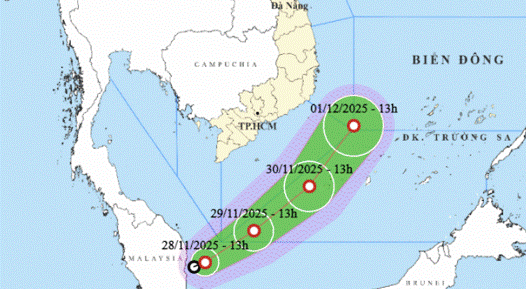
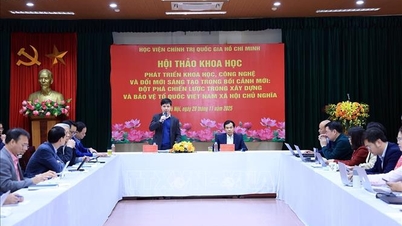
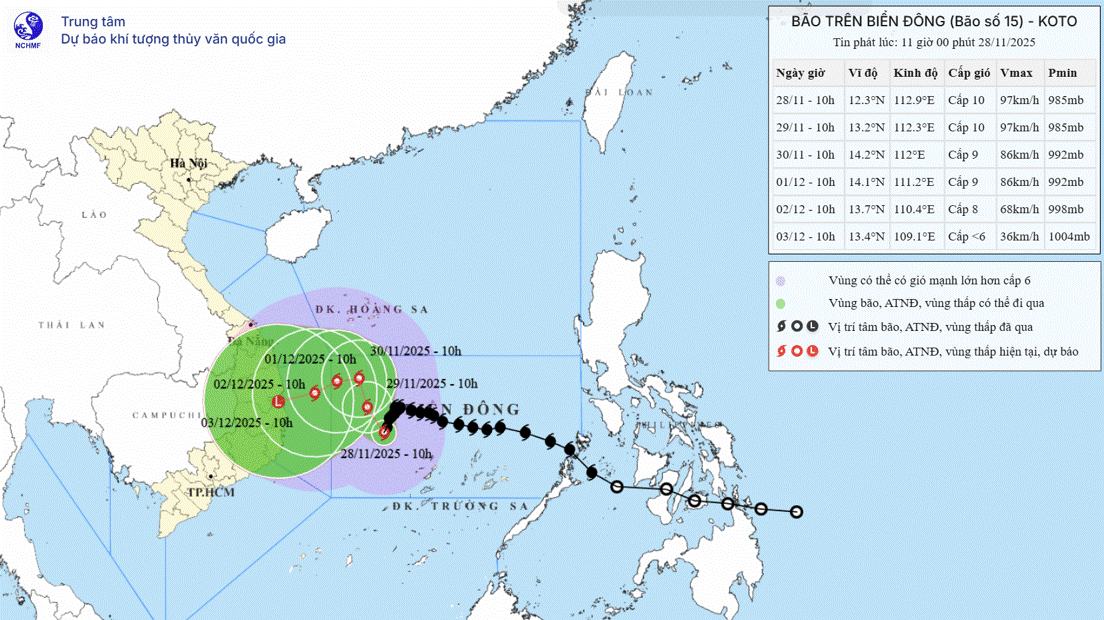









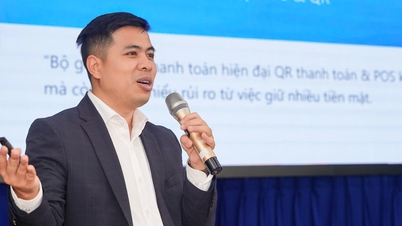









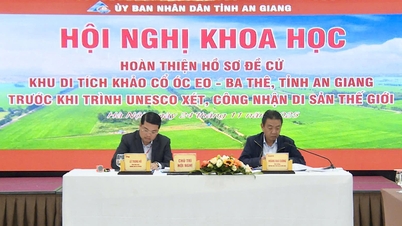








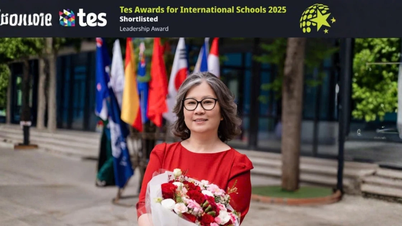
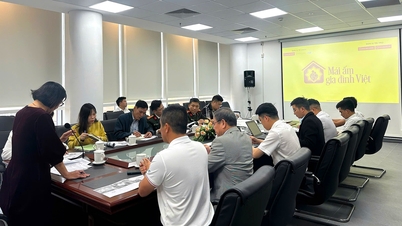

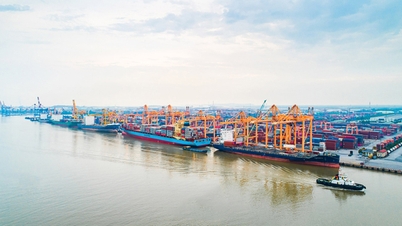
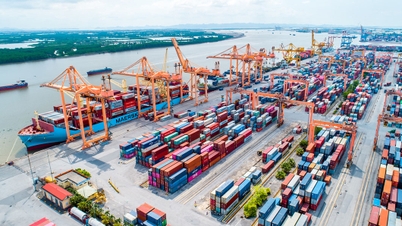
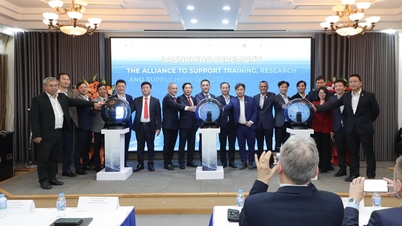



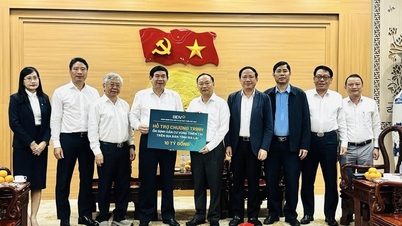







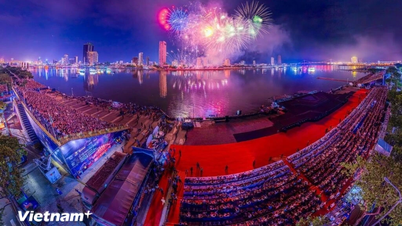

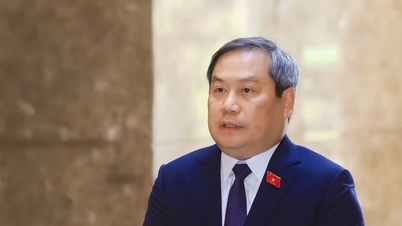
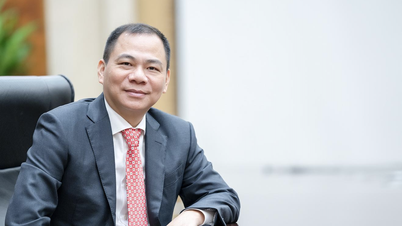

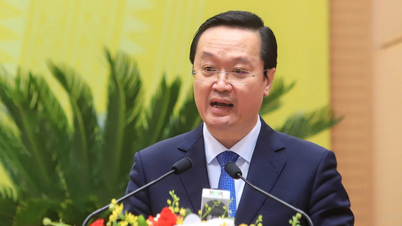



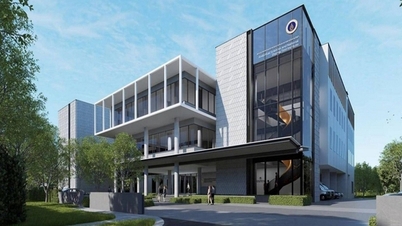

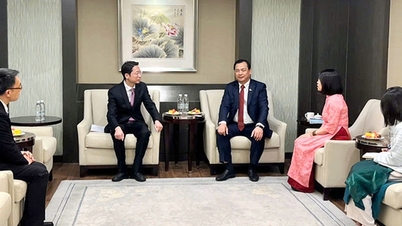
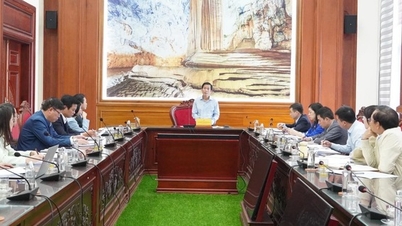


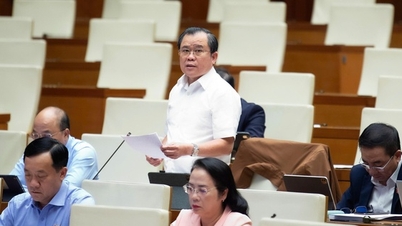
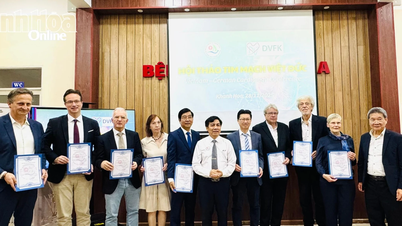

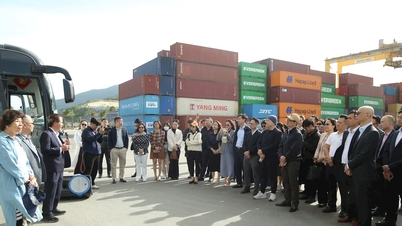



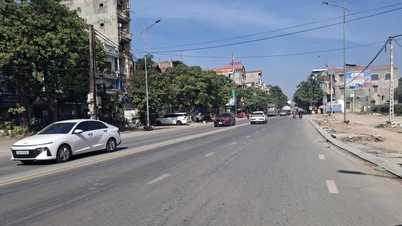
















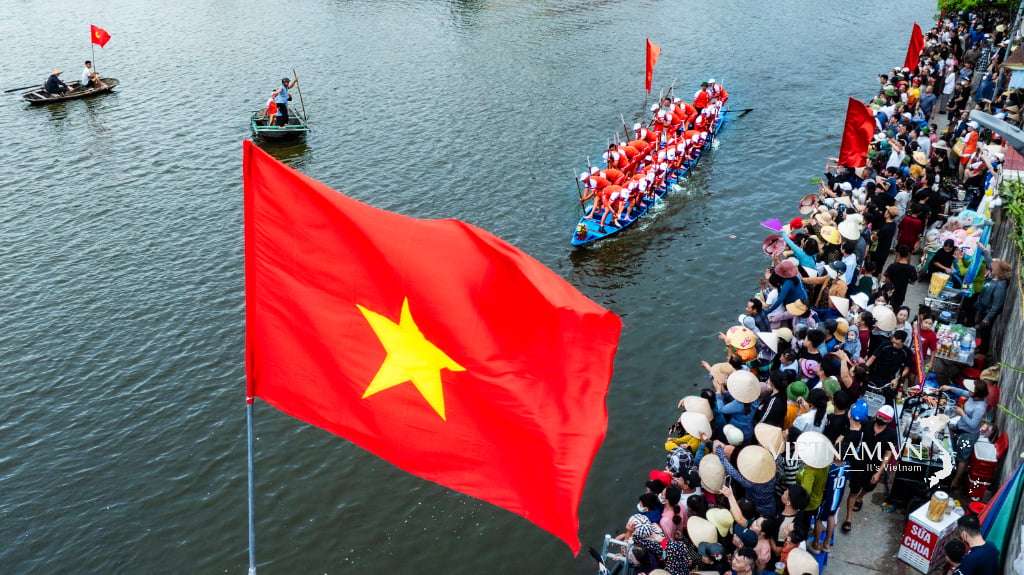

Comment (0)